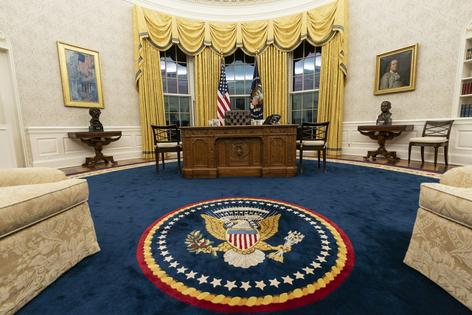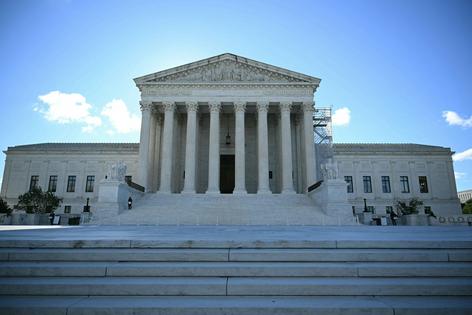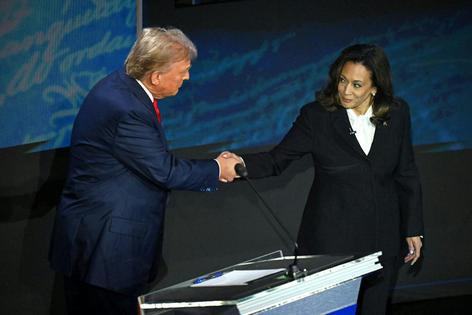Presidential immunity has clear limits, special counsel filing says, and Trump should be tried for efforts to overturn 2020 election
Published in Political News
A new filing by special counsel Jack Smith in the case he has brought against Donald Trump for his alleged attempts to overturn the 2020 presidential election provides greater detail and support for Smith’s argument that Trump, while president, committed illegal acts to reverse his 2020 election loss.
Those acts, argues Smith, were taken by Trump as a candidate for reelection and therefore are not covered by a 2024 Supreme Court opinion related to the case that says presidents’ official actions are immune from prosecution when they exercise their core constitutional powers.
But are the actions that fall outside of a president’s core constitutional powers clearly defined? Smith’s filing is not only relevant to his 2020 election subversion case against Trump but will likely affect the next and future presidents of the United States. The filing, and inevitable legal battles that will result from it, will help clarify precisely how far presidential immunity extends.
While arguments related to the Trump case will take place in a courtroom, Congress has and will continue to have an underappreciated responsibility in defining and curbing presidential power. As a constitutional law scholar who studies government institutions and how they work, I believe that Congress has a unique role in shaping the balance of powers among the three branches of government at this moment in history.
The Trump case and the precedent on which it relies recognize that the most constitutionally suspect presidential actions are those that exceed the outer limits of one branch’s authority or undermine the powers of another. For example, with respect to the certification of the results of a presidential election, the court noted that Congress has legislated extensively and the president plays no direct constitutional or statutory role in that process.
By acting under its own constitutional legislative and oversight authority, Congress can push back against presidential power.
In August 2023, a federal grand jury indicted Trump on four counts of conduct related to conspiring to overturn the November 2020 presidential election.
Trump contested the indictment, alleging the president has absolute immunity from criminal prosecution for official actions taken while in office. The case made its way to the Supreme Court, and the court made its now famous immunity ruling, stating: “The Court thus concludes that the President is absolutely immune from criminal prosecution for conduct within his exclusive sphere of constitutional authority.”
Yet not all presidential actions fall within these core powers. The court differentiated between three types of presidential action.
Some actions clearly fall within the scope of the president’s exclusive constitutional authority. These responsibilities include serving as commander in chief, recognizing foreign governments and signing or vetoing the bills Congress passes. Presidential actions under this authority are absolutely immune from prosecution.
On the other end of the spectrum, some actions clearly are outside the scope of the president’s constitutional authority. For example, when a president files for reelection or sets up a campaign committee, the president acts as a candidate, not as occupant of the office of the presidency. There is no immunity for these acts.
Yet sometimes the president acts in what the Supreme Court has called a “zone of twilight,” where the president and Congress share powers or in areas that are within the outer perimeters of the presidential office.
For example, even though the Constitution does not explicitly detail this responsibility, the president acts in his official capacity when he addresses the nation from the Oval Office to update the American people on important events.
In these “zone of twilight” instances, a prosecution cannot hinder the president’s ability to do the job. That means the president has immunity unless the prosecutor can show that prosecution will not upset the balance of power between the three branches of government.
The primary reason for granting immunity to public officials, including to prosecutors and judges, is to enable them to serve the public without the risk of being punished criminally for doing what they think best serves the country. Potential criminal liability raises the possibility that public officials would make decisions based on political opponents’ threats, rather than by exercising the independent judgment required for effective public service.
Fear of political threat is of particular concern for the president. As the court explained in the Trump case, without immunity, “the President would be chilled from taking the ‘bold and unhesitating action’” required of the office.
In contrast to other federal offices in the U.S. constitutional system, the presidency composes an entire branch of government, known as the executive branch. Prior Supreme Court decisions recognized the president’s duties are “of unrivaled gravity and breadth” in that the president makes the most sensitive and far reaching decisions entrusted to any elected official.
The president is vested with the executive power of the United States and serves as the nation’s leader in politics and foreign and domestic policy. And the president’s job is far more complex than the 18th-century framers of the Constitution could have imagined.
The modern executive branch includes hundreds of agencies and millions of federal employees who help the president execute the law. As a result, the president has more political and policy advisers than anyone else in government. The promise of immunity helps these advisers provide the president nuanced information on policy and politics.
And while the expansion of the executive branch may seem like a modern phenomenon, concerns over increased executive power are nothing new. Indeed, at the beginning of President George Washington’s second term, Benjamin Franklin “was struck dumb with astonishment at the sentiments … (t)hat the executive alone shall have the right of judging what shall be kept secret, and what shall be made public.”
This raises the question, how does Congress write laws and oversee the implementation of them in a constitutionally, legally and historically established world where the president has such power?
While the phrase “separation of powers” has long been used to describe the U.S. system of government, in fact, U.S. legal history shows that the American constitutional system is one of shared, not separate, powers.
Presidential immunity sits purely within this context. So, in the wake of the Supreme Court’s 2024 ruling, it’s not up to the president to decide which of his actions in that “zone of twilight” will be given immunity and which ones won’t.
That’s up to the courts and Congress.
Here’s how that works: The extent of presidential immunity rests on the federal judiciary’s rulings on what constitutes official and unofficial acts. Articulated first by the Supreme Court in 1803, it is the judiciary’s job “to say what the law is.”
But Congress writes the law. And Congress oversees how the president implements it.
Congress has investigated the conduct of at least 15 sitting or former presidents. For example, in the wake of the Watergate scandal, the congressional investigations revealed crucial evidence of President Nixon’s illegal actions and ultimately led to his resignation.
In doing so, Congress relied on its own constitutional authority as a way to use litigation-like tools to shed light on presidential actions that are outside the president’s official duties or in the “zone of twilight.”
Not only did these investigations inform the public about presidential actions, they helped Congress assert its position in the American constitutional system of shared powers.
In a legal world that, in part, defines presidential immunity based on the balance of power between the three branches of government, this can’t be a bad thing.
This article is republished from The Conversation, a nonprofit, independent news organization bringing you facts and trustworthy analysis to help you make sense of our complex world. It was written by: Jennifer Selin, Arizona State University
Read more:
‘Above the law’ in some cases: Supreme Court gives Trump − and future presidents − a special exception that will delay his prosecution
Trump, Ukraine and a whistleblower: Ever since 1796, Congress has struggled to keep presidents in check
Can Trump be prosecuted? Supreme Court will take up precedent-setting case to define the limits of presidential immunity
Jennifer L. Selin has received funding and/or support for her research on the executive branch from the Administrative Conference of the United States. The views in this piece are those of the author and do not represent the position of the Administrative Conference or the federal government.


































































Comments